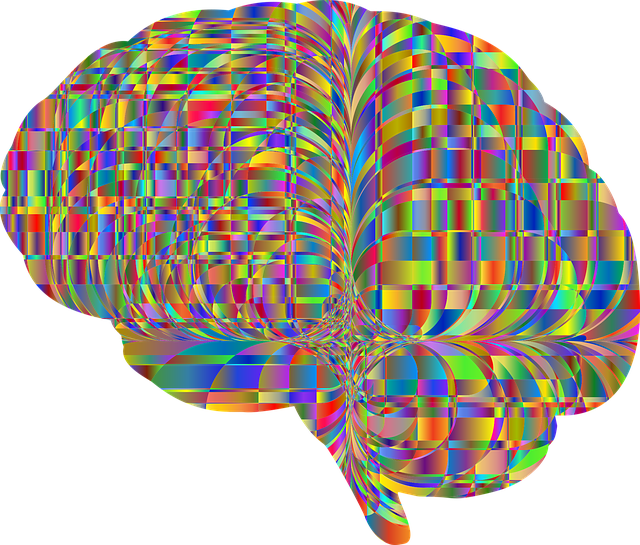In today's fast-paced world, digital therapy platforms offer accessible and convenient Therapy for Adults, including specialized ADD-ADHD evaluations. These apps focus on developing inner strength, emotional intelligence, and communication strategies to help adults manage stress, improve relationships, and cultivate positive mindsets. Effective mental wellness apps for ADD/ADHD should integrate evidence-based strategies like CBT, mindfulness exercises, and structured goal setting, tailored to individual needs. Privacy and user experience are key; robust data security measures ensure confidentiality while intuitive design encourages consistent use. This dual focus enhances the app's value in promoting Therapy for Adults ADD-ADHD evaluations and improving mental wellness outcomes.
The digital landscape offers unprecedented opportunities for addressing mental health challenges, particularly among adult populations. This article explores the growing trend of digital therapy and its potential impact on mental wellness app development. We delve into crucial aspects such as understanding the unique mental health needs of adults, designing apps for effective ADD-ADHD evaluations and management, incorporating evidence-based practices, ensuring user privacy, and fostering trust in these innovative tools. By focusing on these key areas, we aim to enhance access to quality therapy for adults with ADD-ADHD evaluations.
- Understanding Mental Health Needs in Adult Populations: The Rise of Digital Therapy
- Designing Effective Apps for ADD-ADHD Evaluations and Management
- Incorporating Evidence-Based Practices: Ensuring Quality Care Through App Development
- User Experience and Privacy Considerations: Building Trust in Mental Wellness Apps
Understanding Mental Health Needs in Adult Populations: The Rise of Digital Therapy

Understanding Mental Health Needs in Adult Populations has become increasingly crucial in today’s fast-paced world. Adults often face unique challenges that can significantly impact their mental wellness, such as stress from work and personal life, relationship issues, and even conditions like Attention Deficit Disorder (ADD) or Attention Deficit Hyperactivity Disorder (ADHD). The rise of digital therapy offers a promising solution to address these needs effectively.
Digital therapy platforms provide accessible and convenient Therapy for Adults, making it easier for them to seek help from the comfort of their homes. These apps often incorporate features like ADD-ADHD evaluations to assess individual needs, promoting Inner Strength Development and Emotional Intelligence. By leveraging technology, they also facilitate the acquisition of valuable Communication Strategies that can enhance users’ ability to manage stress, improve relationships, and cultivate a positive mindset—all essential components for maintaining good mental health.
Designing Effective Apps for ADD-ADHD Evaluations and Management

Designing effective mental wellness apps for Attention Deficit Disorder (ADD) and Attention Deficit Hyperactivity Disorder (ADHD) evaluations and management requires a nuanced approach. These apps should go beyond basic symptom tracking by integrating evidence-based strategies tailored to the unique needs of individuals with ADD/ADHD. Features such as personalized goal setting, structured task management, mindfulness exercises, and adaptive notifications can significantly enhance users’ ability to self-regulate and improve their daily functioning.
For instance, apps can facilitate therapy for adults with ADD/ADHD by offering resilience-building activities that foster a growth mindset, boost confidence through achievable milestones, and teach effective stress management techniques. By combining these elements seamlessly, well-designed apps can create a supportive digital environment that promotes self-care, enhances focus, and ultimately improves mental wellness outcomes.
Incorporating Evidence-Based Practices: Ensuring Quality Care Through App Development

Incorporating evidence-based practices is paramount in mental wellness app development to ensure quality care. Therapists and developers must collaborate closely, leveraging clinical expertise to design features that support legitimate therapeutic interventions. Apps should offer tools grounded in proven techniques like cognitive behavioral therapy (CBT), mindfulness exercises, and structured goal setting, all tailored for the unique needs of specific populations, such as adults with ADD/ADHD. This ensures users receive effective support for their emotional well-being promotion techniques, enhancing the app’s value in mental health awareness initiatives.
Additionally, robust risk management planning is essential. Developers must prioritize data security and privacy, adhering to strict guidelines to protect user information. They should also implement features that encourage safe and responsible use, such as reminders for self-care breaks, alerts for excessive screen time, and resources for seeking professional help when needed. These measures not only contribute to a positive user experience but also facilitate the overall risk management planning for mental health professionals who rely on these tools in their practice.
User Experience and Privacy Considerations: Building Trust in Mental Wellness Apps

Creating a mental wellness app involves thoughtful consideration of user experience (UX) and privacy to build trust with users seeking therapy for adults, including those with ADD-ADHD. A well-designed UX ensures intuitive navigation, clear communication of features, and personalized content tailored to individual needs. Incorporating interactive elements, such as mood trackers or meditation guides, enhances engagement and encourages consistent use.
Privacy is paramount in mental wellness apps. Developers must prioritize data security measures, transparent information sharing practices, and compliance with regulations like GDPR and HIPAA. Clear privacy policies outlining data collection, storage, and usage are essential. Additionally, implementing robust encryption protocols and secure login methods help protect sensitive user information, fostering trust and ensuring the confidentiality of users’ therapy for adults and ADD-ADHD evaluations. Features like anonymous data aggregation can also support research efforts while respecting individual privacy.
Mental wellness app development is revolutionizing therapy for adults with ADD-ADHD evaluations, offering convenient and accessible solutions. By incorporating evidence-based practices and prioritizing user experience and privacy, these apps ensure quality care while fostering trust among users. As the demand for digital therapy grows, developers must continue to innovate, creating effective tools that cater to the unique mental health needs of adult populations.











